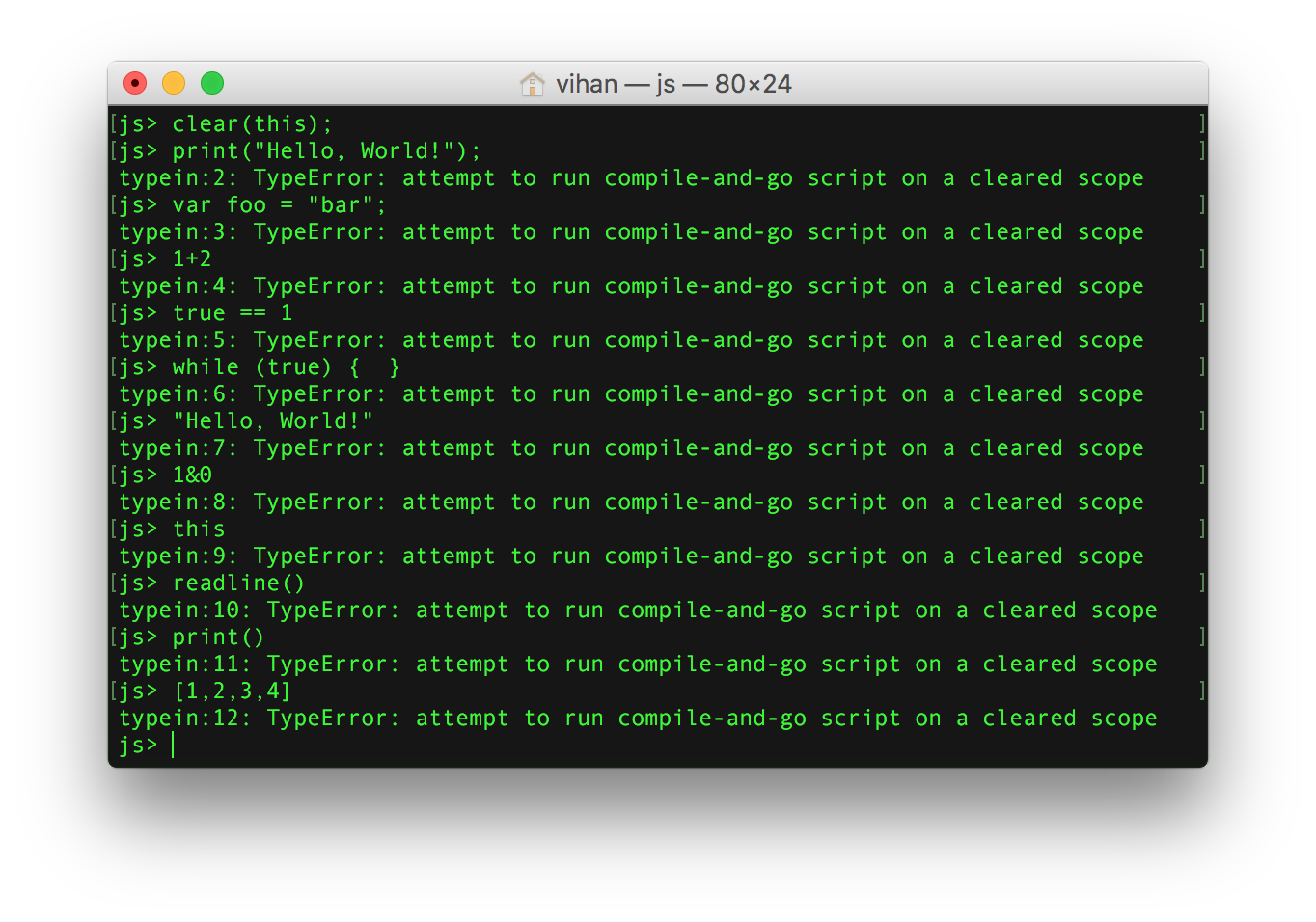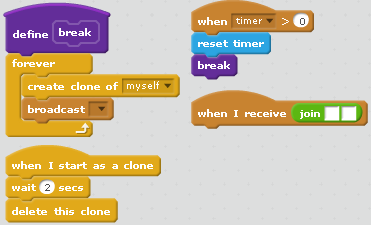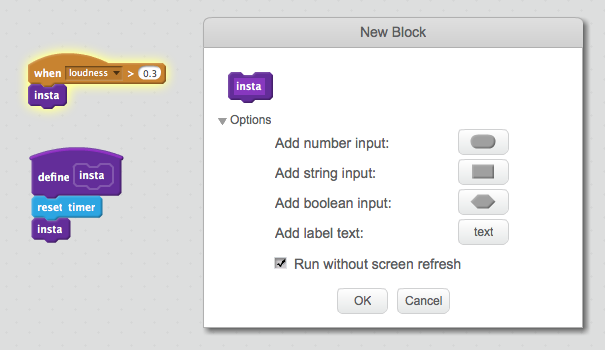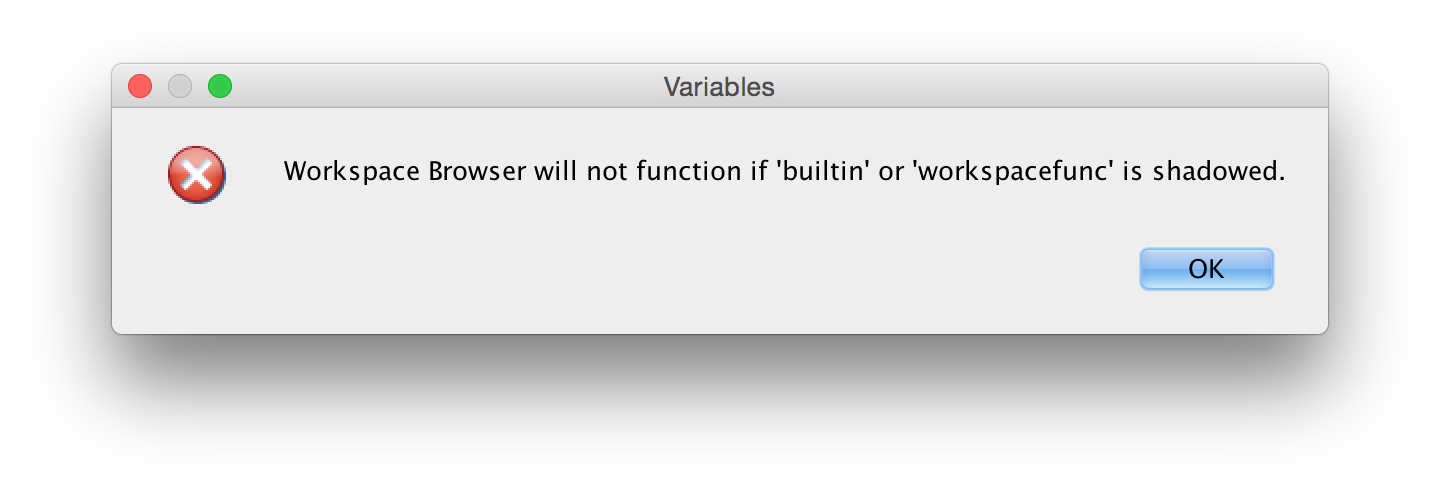Try to write some code in your language and make it not satisfying our criteria of being a programming language any more.
A language satisfies our criteria (simplified version for this challenge) of being a programming language if:
- It can read user input representing tuples of positive integers in some way.
- It can output at least two different possible results depending on the input.
- It can take two positive integers and add them (and the result can affect the output).
- It can take a positive integer and decide whether it is a prime (and the result can affect the output).
- For the purpose of this challenge, any kind of output that isn't an allowed output method for a normal challenge is ignored. So it doesn't matter whether the program can also play a piece of music, or posting via HTTP, etc.
- Update: You can also choose one or some of the allowed output methods, and ignore all the others. But you must use the same definition everywhere in the following criteria. And if your program can disable more than one output methods — that worths more upvotes.
Examples like making it not able to output, or disabling all the loop constructs so it won't be able to do primality test and making sure the user cannot re-enable them.
You should leave a place for inserting new code. By default, it is at the end of your code. If we consider putting the source code in that place in your answer and running the full code as a complete program the interpreter of a new language, that language should not satisfy the criteria.
But the inserted code must be executed in such a way like a language satisfying the criteria:
- The inserted code must be grammatically the same as something (say it's a code block in the following criteria) that generally do satisfy the criteria, from the perspective of whoever wants to write a syntax highlighter. So it cannot be in a string, comment, etc.
- The inserted code must be actually executed, in a way it is supposed to satisfy the criteria. So it cannot be in an unused function or
sizeofin C, you cannot just execute only a non-functional part in the code, and you cannot put it after an infinite loop, etc. - You can't limit the number of possible grammatically correct programs generated this way. If there is already something like a length limit in the language you are using, it shouldn't satisfy the criteria even if this limit is removed.
- You can't modify or "use up" the content of input / output, but you can prevent them from being accessed.
- These criteria usually only applies to languages without explicit I/O:
- Your code should redirect the user input (that contains informations of arbitrary length) to the inserted code, if a code block isn't usually able to get the user input directly / explicitly in the language you are using.
- Your code should print the returned value of the inserted code, if a code block isn't usually able to output things directly / explicitly in the language you are using.
- In case you print the returned value, and it is typed in the language you are using, the returned type should be able to have 2 different practically possible values. For example, you cannot use the type
struct {}orstruct {private:int x;}in C++.
This is popularity-contest. The highest voted valid answer (so nobody spotted an error or all errors are fixed) wins.
Clarifications
- You shouldn't modify the code in the text form, but can change the syntax before the code is interpreted or compiled.
- You can do other things while the code is running. But the reason that it doesn't satisfy the criteria should be within the inserted code itself. It can error because of the interference of another thread, but not just be killed by another thread.
- All the specs basically means it should be grammatically likely satisfying the criteria if all the built-ins were not changed but not actually do. It's fine if you find any non-grammatical workarounds, such as passing the parameters to the code block correctly, but make them not able to be used in some way.
- Again, the inserted code must be actually executed. Code after an infinite loop or crashing is considered "not actually executed", thus not valid. Those answers might be interesting, but there are already some other infinite loop or crashing questions on this site, and you may find a more appropriate one to answer. If not, consider asking a new question. Examples of those questions are:
Leaderboard
var QUESTION_ID=61115/*,OVERRIDE_USER=8478*/;function answersUrl(e){return"https://api.stackexchange.com/2.2/questions/"+QUESTION_ID+"/answers?page="+e+"&pagesize=100&order=desc&sort=creation&site=codegolf&filter="+ANSWER_FILTER}function commentUrl(e,s){return"https://api.stackexchange.com/2.2/answers/"+s.join(";")+"/comments?page="+e+"&pagesize=100&order=desc&sort=creation&site=codegolf&filter="+COMMENT_FILTER}function getAnswers(){jQuery.ajax({url:answersUrl(answer_page++),method:"get",dataType:"jsonp",crossDomain:!0,success:function(e){answers.push.apply(answers,e.items),answers_hash=[],answer_ids=[],e.items.forEach(function(e){e.comments=[];var s=+e.share_link.match(/\d+/);answer_ids.push(s),answers_hash[s]=e}),e.has_more||(more_answers=!1),comment_page=1,/*getComments()*/(more_answers?getAnswers():process())}})}/*function getComments(){jQuery.ajax({url:commentUrl(comment_page++,answer_ids),method:"get",dataType:"jsonp",crossDomain:!0,success:function(e){e.items.forEach(function(e){e.owner.user_id===OVERRIDE_USER&&answers_hash[e.post_id].comments.push(e)}),e.has_more?getComments():more_answers?getAnswers():process()}})}*/function getAuthorName(e){return e.owner.display_name}function process(){var e=[];answers.forEach(function(s){var r=s.body;s.comments.forEach(function(e){OVERRIDE_REG.test(e.body)&&(r="<h1>"+e.body.replace(OVERRIDE_REG,"")+"</h1>")});var a=r.match(SCORE_REG);a&&e.push({user:getAuthorName(s),score:s.score,language:a[1],lang:jQuery('<div>').html(a[1]).text(),link:s.share_link})}),e.sort(function(e,s){var r=e.score,a=s.score;return a-r});var s={},r=1,a=null,n=1;e.forEach(function(e){e.score!=a&&(n=r),a=e.score,++r;var t=jQuery("#answer-template").html();t=t.replace("{{PLACE}}",e.n=n+".").replace("{{NAME}}",e.user).replace("{{LANGUAGE}}",e.language).replace("{{SIZE}}",e.score).replace("{{LINK}}",e.link),t=jQuery(t),jQuery("#answers").append(t);var o=e.language;/<a/.test(o)&&(o=jQuery(o).text())/*,s[o]=s[o]||{lang:e.language,user:e.user,size:e.size,link:e.link}*/});var t=e/*[];for(var o in s)s.hasOwnProperty(o)&&t.push(s[o])*/;t.sort(function(e,s){return (e.lang.toUpperCase()>s.lang.toUpperCase())-(e.lang.toUpperCase()<s.lang.toUpperCase())||(e.lang>s.lang)-(e.lang<s.lang)});for(var c=0;c<t.length;++c){var i=jQuery("#language-template").html(),o=t[c];i=i.replace("{{PLACE}}",o.n).replace("{{LANGUAGE}}",o.language).replace("{{NAME}}",o.user).replace("{{SIZE}}",o.score).replace("{{LINK}}",o.link),i=jQuery(i),jQuery("#languages").append(i)}}var ANSWER_FILTER="!t)IWYnsLAZle2tQ3KqrVveCRJfxcRLe",COMMENT_FILTER="!)Q2B_A2kjfAiU78X(md6BoYk",answers=[],answers_hash,answer_ids,answer_page=1,more_answers=!0,comment_page;getAnswers();var SCORE_REG=/<(?:h\d|(?!.*<h\d>)p)>\s*((?:[^,;(\s]| +[^-,;(\s])+)(?=(?: *(?:[,;(]| -).*?)?\s*<\/(h\d|p)>)/,OVERRIDE_REG=/^Override\s*header:\s*/i;body{text-align:left!important}#answer-list,#language-list{padding:10px;float:left}table{width:250px}table thead{font-weight:700}table td{padding:5px}<script src="https://ajax.googleapis.com/ajax/libs/jquery/2.1.1/jquery.min.js"></script> <link rel="stylesheet" type="text/css" href="https://cdn.sstatic.net/Sites/codegolf/all.css?v=7509797c03ea"> <div id="answer-list"> <h2>Leaderboard</h2> <table class="answer-list"> <thead> <tr><td></td><td>Author</td><td>Language</td><td>Score</td></tr></thead> <tbody id="answers"> </tbody> </table> </div><div id="language-list"> <h2>Sorted by Language</h2> <table class="language-list"> <thead> <tr><td></td><td>Language</td><td>User</td><td>Score</td></tr></thead> <tbody id="languages"> </tbody> </table> </div><table style="display: none"> <tbody id="answer-template"> <tr><td>{{PLACE}}</td><td>{{NAME}}</td><td>{{LANGUAGE}}</td><td>{{SIZE}}</td><td><a href="{{LINK}}">Link</a></td></tr></tbody> </table> <table style="display: none"> <tbody id="language-template"> <tr><td>{{PLACE}}</td><td>{{LANGUAGE}}</td><td>{{NAME}}</td><td>{{SIZE}}</td><td><a href="{{LINK}}">Link</a></td></tr></tbody> </table>



